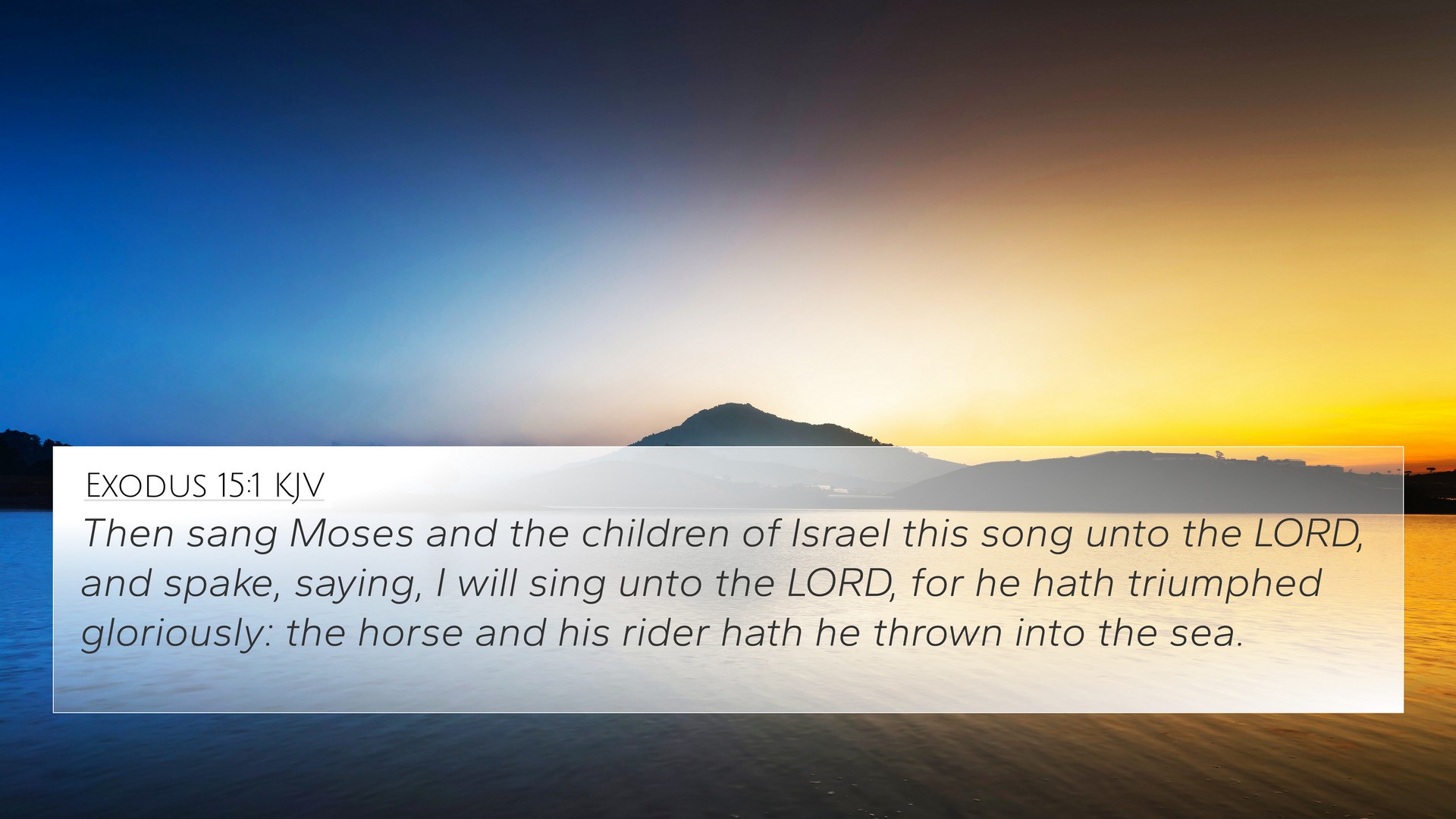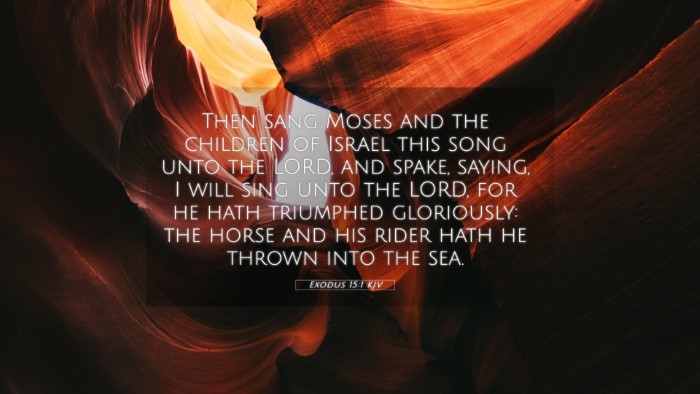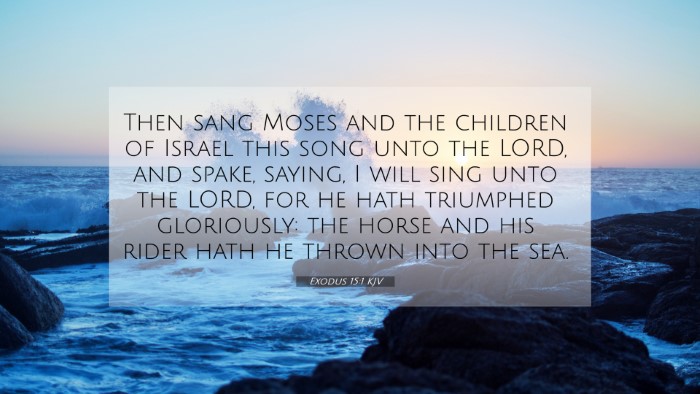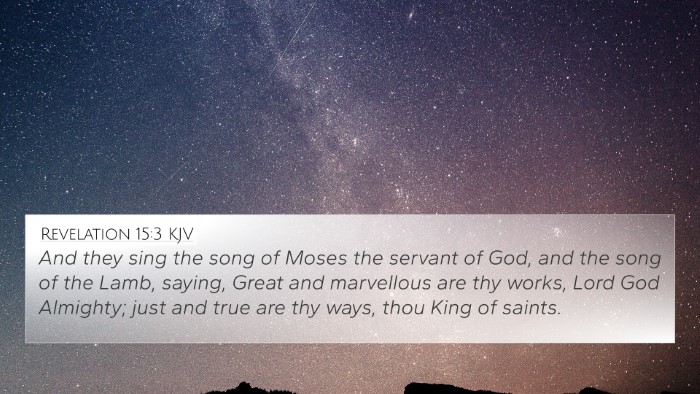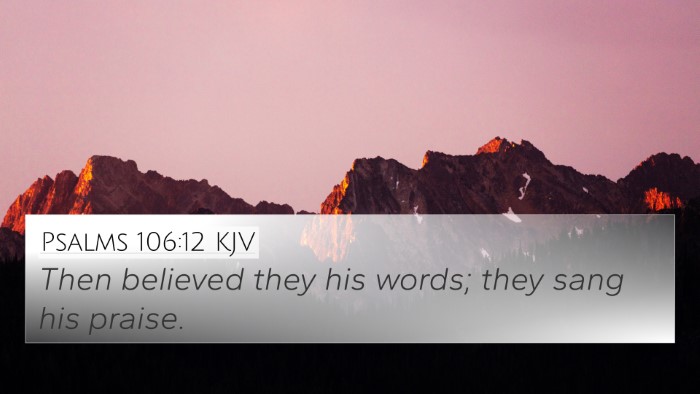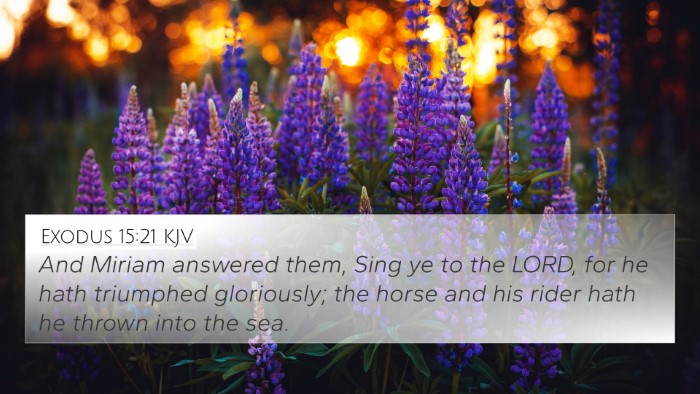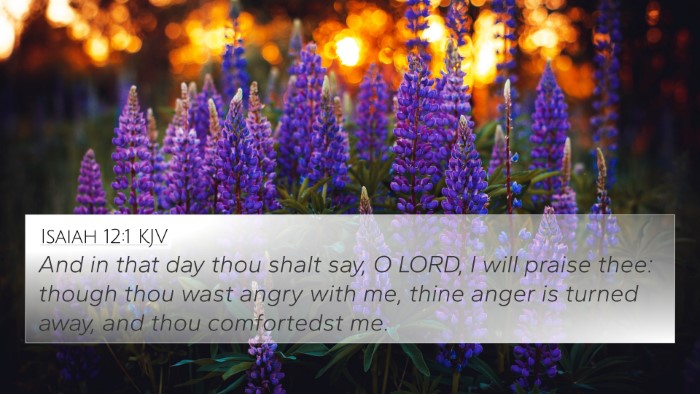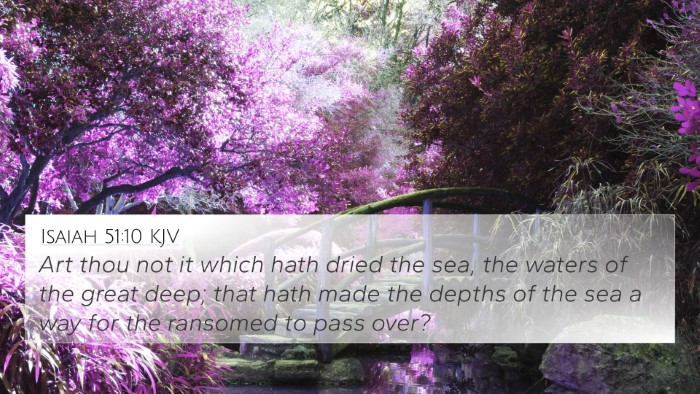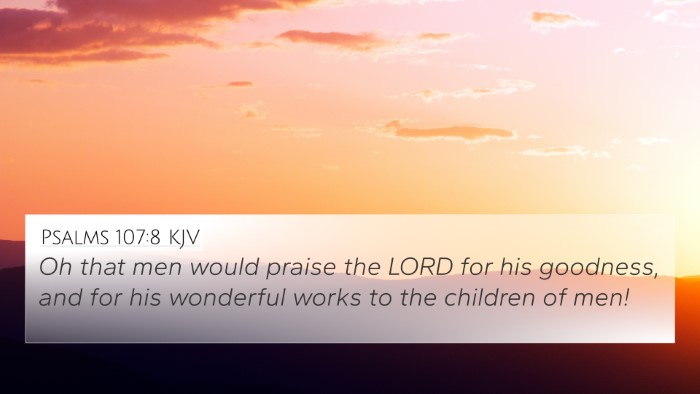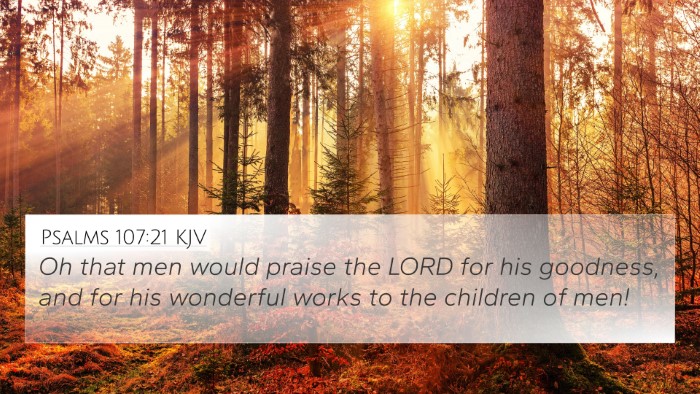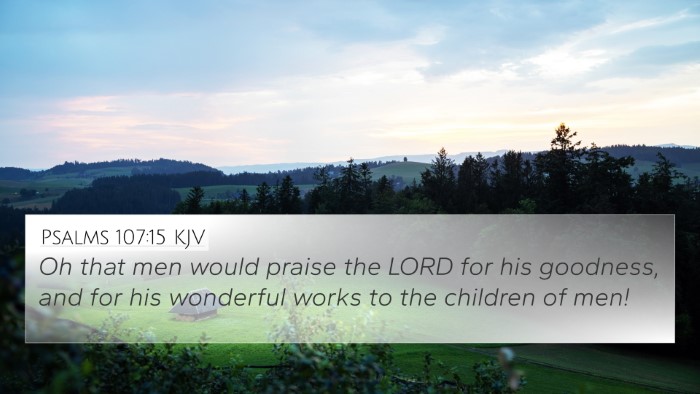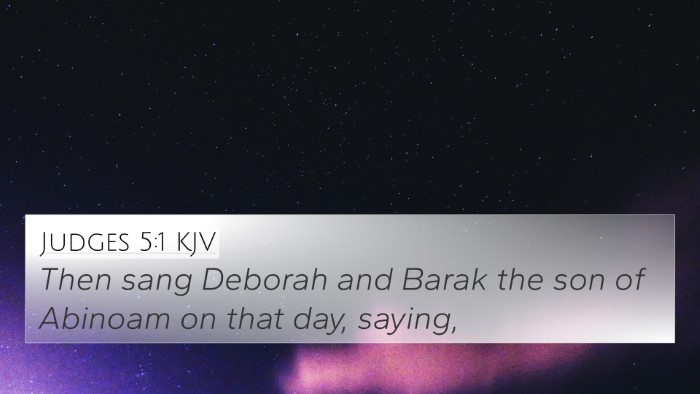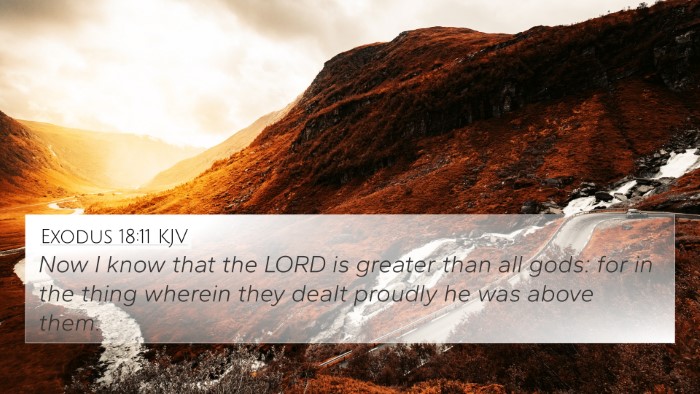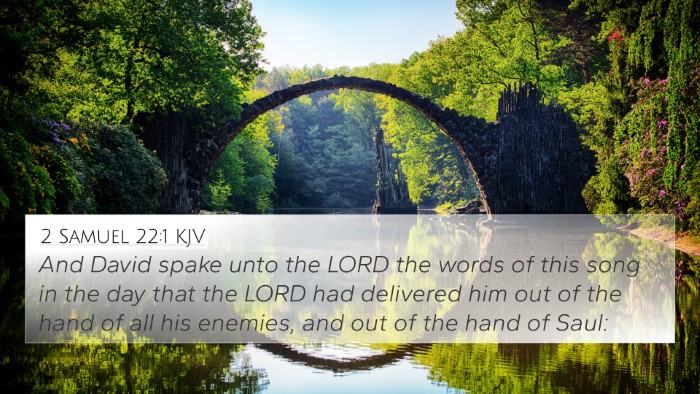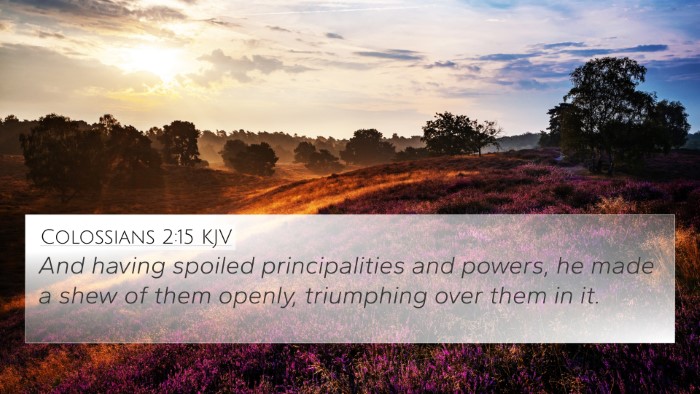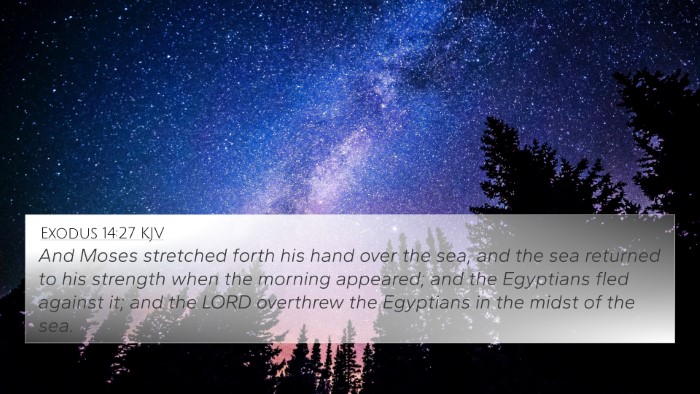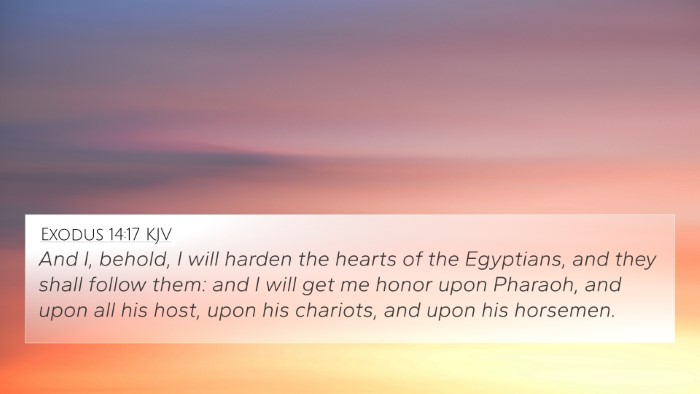Understanding Exodus 15:1
Exodus 15:1 states, "Then sang Moses and the children of Israel this song unto the Lord, and spake, saying, I will sing unto the Lord, for he hath triumphed gloriously: the horse and his rider hath he thrown into the sea." This verse is a proclamation of victory and worship following the miraculous deliverance of Israel from Egyptian bondage.
Context and Significance
This verse occurs after the Israelites have crossed the Red Sea, witnessed God's power, and been delivered from Pharaoh's pursuit. It signifies a moment of collective celebration and gratitude, showcasing their response to God's faithfulness and might.
Insights from Public Domain Commentaries
-
Matthew Henry's Commentary
Matthew Henry emphasizes the importance of singing as an expression of joy and gratitude. He notes that this song serves not only as an act of worship but as a means of teaching future generations about God's deliverance.
-
Albert Barnes' Notes on the Bible
Barnes highlights the significance of the phrase "the horse and his rider hath he thrown into the sea," interpreting it as a metaphor for total victory over anxiety and despair. He underscores the communal aspect of worship here, as the song was a collective effort by both Moses and the people.
-
Adam Clarke's Commentary
Clarke notes that this song reflects the Israelites' recognition of God as their savior. He discusses how the act of singing served to reinforce their faith and dependence on God. Clarke also explores the musical elements of the song, which were likely intended to inspire and unify the people.
Bible Verse Cross-References
Exodus 15:1 relates to several significant passages throughout the Bible. Here are some crucial cross-references:
- Exodus 14:30-31: This passage recounts the deliverance of the Israelites through the Red Sea, setting the context for the song of praise.
- Psalm 118:14: "The Lord is my strength and song, and is become my salvation." This echoes the themes of praise after deliverance.
- Isaiah 12:2: "Behold, God is my salvation; I will trust, and not be afraid." Similar sentiments of faith and gratitude toward God's deliverance.
- Revelation 15:3: The song of Moses is echoed in the New Testament as the saints sing the song of the Lamb, connecting the themes of victory and worship.
- Psalm 146:2: "While I live will I praise the Lord: I will sing praises unto my God while I have any being." This shows the continued emphasis on singing in praise to God.
- 2 Samuel 22:1: David's song of deliverance reflects the same desire to acknowledge God's salvation and triumph over enemies.
- Isaiah 63:7: Shares the theme of recounting God's mercies, highlighting the connection of remembering God's past actions as a form of worship.
Thematic Bible Verse Connections
The themes of Exodus 15:1 resonate throughout the Bible and can be linked topically with other verses that discuss worship, deliverance, and praise:
- Worship after Deliverance: Psalm 30:11-12 - Celebrating God's turning mourning into dancing.
- Victory through God: 1 Corinthians 15:57 - Thanks be to God who gives us victory through our Lord Jesus Christ.
- Collective Worship: Colossians 3:16 - Encouraging one another through psalms, hymns, and spiritual songs.
How to Use Bible Cross-References
Understanding Exodus 15:1 can be enriched through cross-referencing. Here are some tools and methods:
- Bible Concordance: Utilize a concordance to find related verses by keywords.
- Bible Cross-Reference Guide: Many study Bibles provide cross-references directly alongside the text.
- Cross-Referencing Bible Study Methods: Identify themes and study how they manifest across both Old and New Testaments.
Conclusion
Exodus 15:1 serves as a powerful reminder of God's faithfulness in deliverance and the appropriate human response of praise. By utilizing cross-references and exploring connections throughout scripture, deeper insights into God's character and His saving acts can be gleaned. This approach not only enriches personal study but also enhances communal worship experiences.
